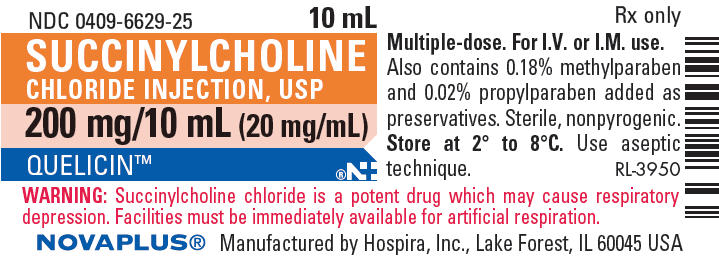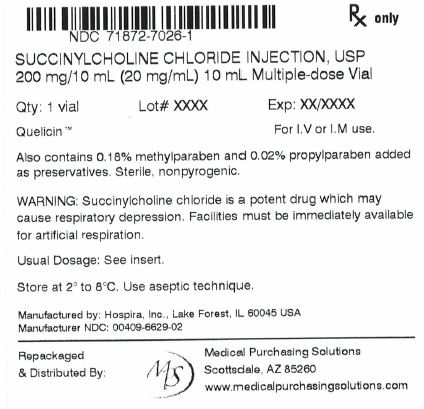
Quelicin | Succinylcholine Chloride Injection while Breastfeeding
What is Quelicin | Succinylcholine Chloride Injection used for?
I am currently breastfeeding and I want to know if using Quelicin | Succinylcholine Chloride Injection is safe for my kid? Does it have any effect on milk production?

Quelicin | Succinylcholine Chloride Injection Breastfeeding Analsys
Succinylcholine chloride while Breastfeeding
SafeCAS Number: 71-27-2
Muscle-relaxant agent with a peripheric depolarizing action that is used for rapid endotracheal intubation procedures, which also has a transient effect. At latest update, no relevant published data concerning excretion into breast milk were found. Because of a very rapid half-life elimination period (less than 1 minute), a significant excretion into breast milk is unlikely. Also, a low oral bioavailability renders the pass of this agent to the infant's plasma, highly unlikely. Succinylcholine should not prevent a mother from breast feeding her baby shortly after recovering from an anesthesia if she is in a good condition. List of Medicines (WHO-2002): compatible with Breastfeeding.
Quelicin | Succinylcholine Chloride Injection Breastfeeding Analsys - 2
Succinylcholine chloride while Breastfeeding
CAS Number: 306-40-1
No information is available on the use of succinylcholine during breastfeeding. Because it is rapidly eliminated and poorly absorbed orally, it is not likely to reach the bloodstream of the infant or cause any adverse effects in breastfed infants.[1][2] A general anesthetic regimen that included succinylcholine for cesarean section caused a delay in the time to the first breastfeeding, but the part that succinylcholine played in this difference in outcome in unknown.

What should I do if already breastfed my kid after using Quelicin | Succinylcholine Chloride Injection?
Quelicin | Succinylcholine Chloride Injection is safe in breastfeeding and should not create any health problem for your baby but in case you feel any health issue associated with Quelicin | Succinylcholine Chloride Injection you should contact your doctor or health care provider. Be it pregnancy or lactation you shall keep your doctor informed.
My health care provider has asked me to use Quelicin | Succinylcholine Chloride Injection, what to do?
Usage of Quelicin | Succinylcholine Chloride Injection is safe for nursing mothers and baby, No worries.
If I am using Quelicin | Succinylcholine Chloride Injection, will my baby need extra monitoring?
No
Who can I talk to if I have questions about usage of Quelicin | Succinylcholine Chloride Injection in breastfeeding?
US
National Womens Health and Breastfeeding Helpline: 800-994-9662 (TDD 888-220-5446) 9 a.m. and 6 p.m. ET, Monday through Friday
UK
National Breastfeeding Helpline: 0300-100-0212 9.30am to 9.30pm, daily
Association of Breastfeeding Mothers: 0300-330-5453
La Leche League: 0345-120-2918
The Breastfeeding Network supporter line in Bengali and Sylheti: 0300-456-2421
National Childbirth Trust (NCT): 0300-330-0700
Australia
National Breastfeeding Helpline: 1800-686-268 24 hours a day, 7 days a week
Canada
Telehealth Ontario for breastfeeding: 1-866-797-0000 24 hours a day, 7 days a week
